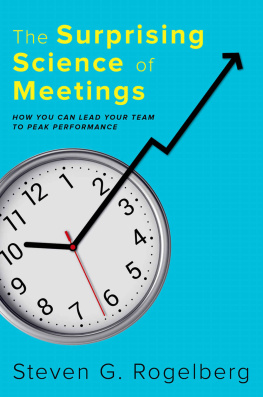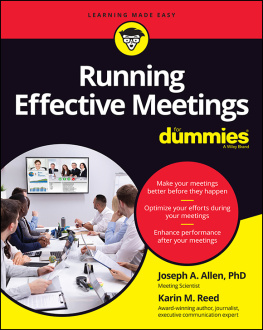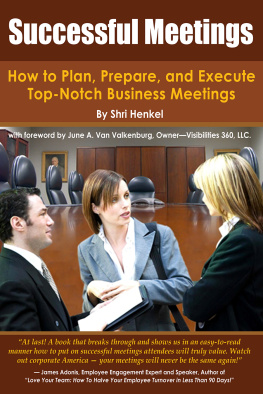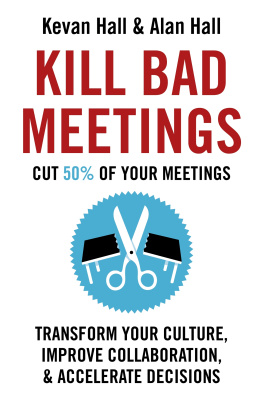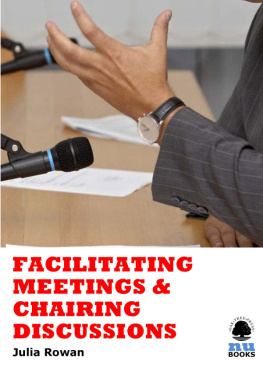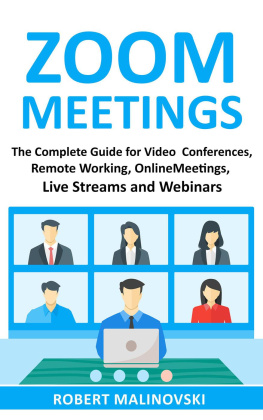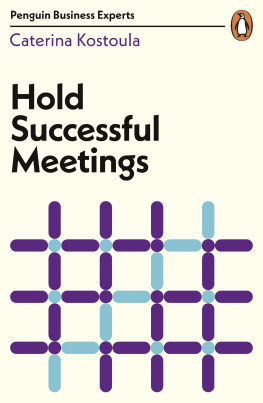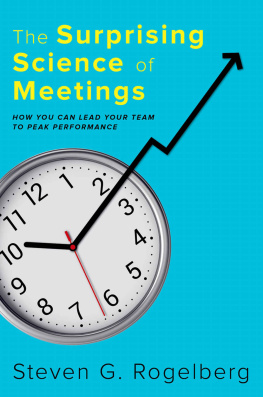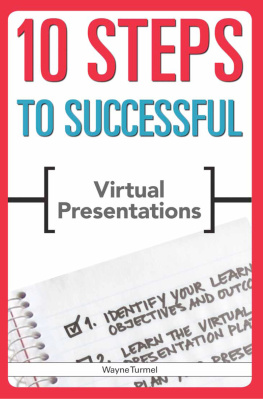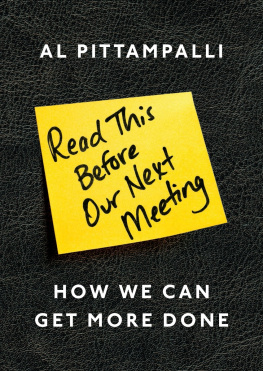THE SURPRISING SCIENCE OF MEETINGS
THE SURPRISING SCIENCE OF MEETINGS
HOW YOU CAN LEAD YOUR
TEAM TO PEAK PERFORMANCE
STEVEN G. ROGELBERG


Oxford University Press is a department of the University of Oxford. It furthers the Universitys objective of excellence in research, scholarship, and education by publishing worldwide. Oxford is a registered trade mark of Oxford University Press in the UK and certain other countries.
Published in the United States of America by Oxford University Press
198 Madison Avenue, New York, NY 10016, United States of America.
Steven G. Rogelberg 2019
All rights reserved. No part of this publication may be reproduced, stored in a retrieval system, or transmitted, in any form or by any means, without the prior permission in writing of Oxford University Press, or as expressly permitted by law, by license, or under terms agreed with the appropriate reproduction rights organization. Inquiries concerning reproduction outside the scope of the above should be sent to the Rights Department, Oxford University Press, at the address above.
You must not circulate this work in any other form and you must impose this same condition on any acquirer.
Library of Congress Cataloging-in-Publication Data
Names: Rogelberg, Steven G., author.
Title: The surprising science of meetings: how you can lead your team
to peak performance / Steven G. Rogelberg.
Description: New York: Oxford University Press, [2019] |
Includes bibliographical references and index.
Identifiers: LCCN 2018006496 | ISBN 9780190689216 (hardcover: alk. paper) | ISBN 9780190689230 (epub)
Subjects: LCSH: Business communication. | Meetings. | Leadership.
Classification: LCC HF5549.5.C6 R634 2018 | DDC 658.4/56dc23
LC record available at https://lccn.loc.gov/2018006496
Much love to Sandy, Sasha, and Gordon, the three people I would go anywhere to meet with.
CONTENTS
Meetings are not in and of themselves problematic. Meetings are essential to teams and organizations. Without meetings, organizational democracy, inclusion, participation, buy-in, communication, attachment, teamwork, coordination, and cohesion would all be compromised. What we need to rid ourselves of are bad meetings, wasted time in meetings, and unnecessary meetings. This book is about solving these problems.
Meetings consume massive amounts of individual and organizational time, with a recent estimate suggesting there are fifty-five million meetings a day in the United States alone. The costs of this meeting time are staggering when weighted with the average salary data of attendees. It is estimated that the annual cost of meetings in the United States is a whopping $1.4 trillionor 8.2 percent of the 2014 US GDP. Furthermore, this tremendous time investment yields only modest returns. Too many meetings was the number one time-waster at the office, cited by 47 percent of 3,164 workers in a study conducted by Salary.com focused on workplace time drains. Translating this into dollars, one reasonable estimate is that over $250 billion a year is wasted by having too many bad meetings. And these estimates do not include the indirect costs of bad meetings (e.g., employee frustration and strain).
Sadly, most companies and most leaders view poor meetings as inevitable because they dont know of better ways or they try new methods that dont stick, as they really are not founded in any scientific evidence of success. Also, bad meetings beget more bad meetings as dysfunctional practices become normative across the organization. Taken together, poor meetings become accepted as a way of life and a natural cost of doing business, like rain is a way of life in London. But, unlike the weather, meetings can indeed be improved.
Drawing on over fifteen years of original research I have conducted on the topic of meetings with my team, surveying and interviewing thousands of employees from hundreds of organizations, as well as drawing from a large number of evidence-based sources, my goal with this book is to translate the science of meetings to bring direction, guidance, and relief to those leading and participating in meetings. While many people I meet are surprised to hear that there are social and organizational scientists who study meetings, this research has produced large numbers of scientific publications, conference presentations, book chapters, dissertations, and extensive media coverage. And, of most relevance here, this science has produced insights and practical applications that can directly benefit executives and organizations by promoting efficiency, productivity, increased innovation and employee engagement, superior decisions, enhanced commitment to initiatives, better communication, and a greater sense of camaraderie across the workforce.
I wrote this book for any individual responsible for calling and leading meetings at work. This includes team leaders, supervisors, managers, directors, and senior executives across organizations and industry sectors. It is for learning and development professionals, executive coaches, and other educators who train and advise people on teamwork and leadership. It is for HR leaders and senior organizational leaders working to change the meeting culture at their organization.
Each chapter in this book goes into depth on a particular vexing meeting derailer as a way of setting up evidence-based solutions. As a general approach, I bring light to the types of dysfunctions at hand in meetings, and then provide a set of specific best practices and solutions to help you recover wasted time. I make these recommendations on the basis of reasonable extrapolations from the evidence, and also by examining what cutting-edge organizations like Google and Amazon are doing.
What counts as a meeting? Meeting sizes and meeting purposes can vary tremendously. In general, the focus here is on the most typical types of meetings found in organizations. They vary in size from two to fifteen attendees and generally are ostensibly about coordination, communication, decision-making, and monitoring. I cover everything here from the weekly meeting, to strategy meetings, to planning meetings, to task force meetings, to troubleshooting meetings, to brainstorming meetings, to debriefing meetings. That said, I cant imagine a meeting type or situation that would not benefit from learning about what works and what doesnt. Try applying what you learn here to a full-day retreat. Or to organizational training. Or to client meetings. Or to your community meeting, religious meeting, or PTA meeting. Every situation involving two or more people coming together for discussion, communication, coordination, or decision-making can benefit from a thoughtful evidence-based approachan approach that truly honors the time and commitment of all parties.
Bad meetings can drain the life out of individuals and organizations. But meetings done well, leveraging evidence-based solutions like the ones well explore in this book, can be transformative and hugely positive. The cascading positive effects of improving just one meeting each day, across people and across time, yields not only tremendous organizational benefitsfrom cost savings to better organizational strategybut also individual feelings of satisfaction, engagement, and accomplishment. At the same time, leaders and future leaders mastering meeting leadership skills are uniquely positioned to elevate their own career progression and personal success as they become highly adept at working with others, building relationships, unleashing others full potential, and achieving team wins. Conversely, without these meeting leadership skills, one joins the ranks of so many others who bear the responsibility for the meeting problem and are the cause of so much frustration in the workplace.

